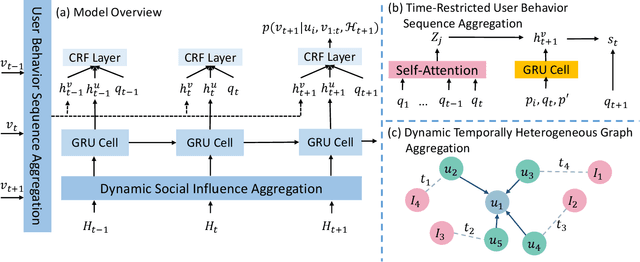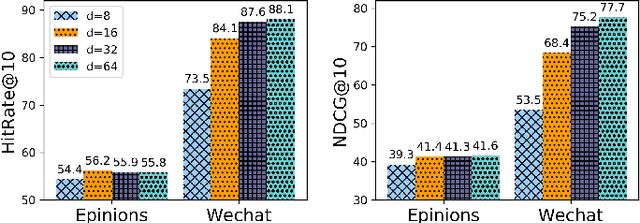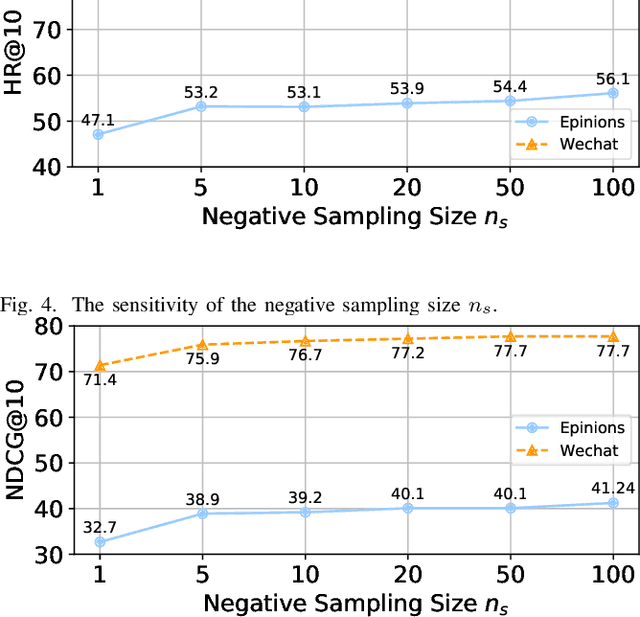Sili Zhang
Debiased Model-based Interactive Recommendation
Feb 24, 2024Abstract:Existing model-based interactive recommendation systems are trained by querying a world model to capture the user preference, but learning the world model from historical logged data will easily suffer from bias issues such as popularity bias and sampling bias. This is why some debiased methods have been proposed recently. However, two essential drawbacks still remain: 1) ignoring the dynamics of the time-varying popularity results in a false reweighting of items. 2) taking the unknown samples as negative samples in negative sampling results in the sampling bias. To overcome these two drawbacks, we develop a model called \textbf{i}dentifiable \textbf{D}ebiased \textbf{M}odel-based \textbf{I}nteractive \textbf{R}ecommendation (\textbf{iDMIR} in short). In iDMIR, for the first drawback, we devise a debiased causal world model based on the causal mechanism of the time-varying recommendation generation process with identification guarantees; for the second drawback, we devise a debiased contrastive policy, which coincides with the debiased contrastive learning and avoids sampling bias. Moreover, we demonstrate that the proposed method not only outperforms several latest interactive recommendation algorithms but also enjoys diverse recommendation performance.
TEA: A Sequential Recommendation Framework via Temporally Evolving Aggregations
Nov 14, 2021



Abstract:Sequential recommendation aims to choose the most suitable items for a user at a specific timestamp given historical behaviors. Existing methods usually model the user behavior sequence based on the transition-based methods like Markov Chain. However, these methods also implicitly assume that the users are independent of each other without considering the influence between users. In fact, this influence plays an important role in sequence recommendation since the behavior of a user is easily affected by others. Therefore, it is desirable to aggregate both user behaviors and the influence between users, which are evolved temporally and involved in the heterogeneous graph of users and items. In this paper, we incorporate dynamic user-item heterogeneous graphs to propose a novel sequential recommendation framework. As a result, the historical behaviors as well as the influence between users can be taken into consideration. To achieve this, we firstly formalize sequential recommendation as a problem to estimate conditional probability given temporal dynamic heterogeneous graphs and user behavior sequences. After that, we exploit the conditional random field to aggregate the heterogeneous graphs and user behaviors for probability estimation, and employ the pseudo-likelihood approach to derive a tractable objective function. Finally, we provide scalable and flexible implementations of the proposed framework. Experimental results on three real-world datasets not only demonstrate the effectiveness of our proposed method but also provide some insightful discoveries on sequential recommendation.
 Add to Chrome
Add to Chrome Add to Firefox
Add to Firefox Add to Edge
Add to Edge